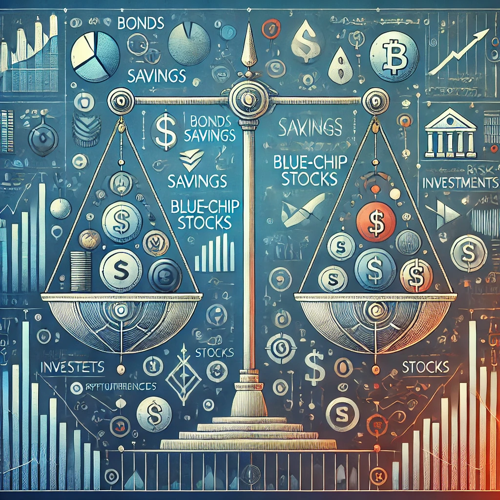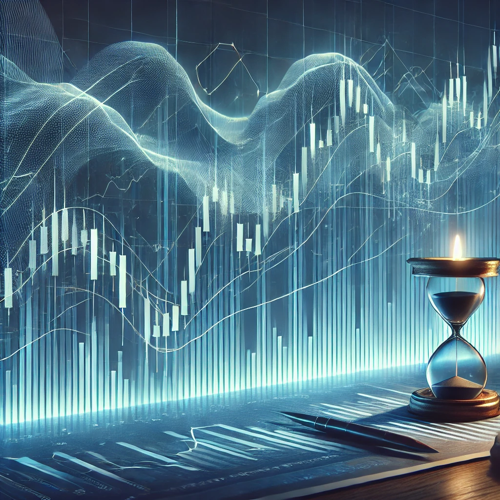Is There Manipulation in Forex?
Manipulation in the Forex market can exist just like in any other financial market. However, due to the nature and functioning of the Forex market, these manipulations carry some unique characteristics.
Key Features of the Forex Market
1. Market Structure:
The forex market is the world’s largest and most liquid financial market. It has a trading volume of approximately $6.6 trillion per day.
The market has a decentralised structure; that is, there is no central exchange or regulatory authority. Transactions are conducted directly between banks, financial institutions and individual investors.
2. Participants:
There are a variety of participants in the market: central banks, large international banks, investment funds, hedge funds, corporates and individual investors.
Central banks and large banks can have a significant influence in the market.
Types of Manipulation in the Forex Market
1. Impact of Large Participants:
Large Banks and Financial Institutions: Large banks and financial institutions may execute large volumes of transactions in the markets. Such transactions may affect prices in the short run. For example, when a large bank trades a currency heavily, these movements may be perceived as price changes by other investors.
Central Banks: Central banks may use their foreign exchange reserves to support or suppress their currencies. This can have a major impact on exchange rates.
2. Market Manipulation:
Market Manipulation: In the forex market, sometimes large players can manipulate the forex market in order to direct price movements. For example, a large player may artificially raise or lower prices to mislead the market.
“Pump and Dump” Tactics: In small and illiquid currencies, some traders may artificially raise prices and then sell quickly to make a profit. This type of manipulation usually occurs in smaller and less liquid markets.
3. Information Asymmetry:
Specialised Information and Insider Learning: Large players may have more information than small investors. For example, large banks and institutional investors can better predict market movements. This information asymmetry may be a disadvantage for small investors.
4. Algorithmic and High Frequency Trading:
Algorithmic Trading: High frequency trading (HFT) and algorithmic trading strategies can change market prices quickly. Such trading strategies can sometimes lead other traders to misleading price movements.
Arbitrage and HFT Strategies: HFT strategies quickly capitalise on small price differences in the market. These strategies can create instant effects on the market.
Regulation and Audit
1. Regulation:
The Forex market is less regulated than other financial markets. However, some countries have local regulatory authorities that regulate Forex brokers and transactions. For example, in the US, there are CFTC (Commodity Futures Trading Commission) and NFA (National Futures Association) regulatory bodies.
2. International Cooperation:
International financial regulatory bodies and co-operations undertake various initiatives to monitor and prevent manipulations in the markets. However, the effectiveness of these inspections may be limited due to the decentralised structure.
Do Political Events Affect the Forex Market?
Political events can affect the Forex market in direct and indirect ways. Since the Forex market is a market that trades on exchange rates, political and economic developments between countries can significantly affect exchange rates.
1. Effects of Political Events on the Forex Market
A. Political Stability and Trust
Political Stability: The political stability of a country can significantly affect exchange rates. Political instability, uncertainty and chaos often have a negative impact on foreign exchange markets. For example, situations such as elections, government changes or civil war can increase investors’ perception of risk and lead to fluctuations in exchange rates.
Confidence Indices: Political events can affect investors’ confidence about a country. Confidence indices and risk perceptions can affect the demand for foreign exchange and cause changes in exchange rates. For example, the perception that a country’s government is stable and reliable may increase the value of the local currency, while an unstable government may do the opposite.
B. Political Decisions and Policy
Monetary Policy: Monetary policies and decisions of central banks have a significant impact on exchange rates. Pressure from political leaders on the independence of central banks can lead to changes in monetary policies. Such changes can affect the value of the country’s currency. For example, raising a country’s interest rates can often strengthen its currency, while lowering interest rates can weaken it.
Fiscal Policies: Fiscal policies of governments (for example, tax policies, budget deficits and public expenditures) can have an impact on exchange rates. High budget deficits and high public debt may adversely affect the value of a country’s currency. On the other hand, fiscal discipline and strong budget management can strengthen the currency.
C. International Relations and Trade Policies
Trade Agreements and Wars: International trade agreements, tariffs and trade wars can have a major impact on exchange rates. For example, when a country concludes a new trade agreement, it may incentivise exports, which may increase the value of the country’s currency. On the other hand, trade wars and tariffs can distort trade balances and cause fluctuations in currencies.
Political Alliances and Conflicts: Political alliances, military conflicts and international tensions can also affect exchange rates. For example, a country’s involvement in international conflicts may increase investors’ perception of risk and cause fluctuations in foreign exchange markets.
D. Elections and Referendums
Election Results: Elections can affect exchange rates because the economic policies of a new government can change market expectations. In particular, large elections (e.g. presidential elections) or unexpected results can lead to sudden changes in exchange rates.
Referendums: Referendum results can cause large fluctuations in exchange rates, especially if they involve important issues such as political independence or EU membership. For example, the aftermath of the Brexit referendum had a significant impact on the British pound.
2. Risks and Opportunities of Political Events in the Forex Market
A. Risks
Uncertainty and Volatility: Political uncertainties and events can increase volatility in markets. Investors are generally more cautious during periods of uncertainty, which leads to fluctuations in foreign exchange markets.
Risky Assets: Political uncertainties may cause the value of risky assets to fall. Investors tend to favour currencies that are seen as safe havens (e.g. US dollar, Swiss franc). This may cause other currencies to fall in value.
B. Opportunities
Arbitrage and Speculation: Political events may create short-term opportunities in the markets. Investors may try to profit by anticipating these events or analysing market reactions.
Comprehensive Analyses: Political events, when combined with economic analyses, allow for more comprehensive investment decisions. A good understanding of political risks and opportunities can give investors an advantage.
3. Analyses and Investment Strategies Regarding Political Events
A. Basic Analysis
Economic Indicators: In order to understand the impact of political events, it is important to analyse economic indicators. For example, a country’s economic growth data, unemployment rates and inflation figures can help assess the economic impact of political events.
Political Risk Analysis: Political risk analysis can help traders understand the impact of political events on foreign exchange markets. These analyses allow traders to identify risks and shape their strategies accordingly.
Price Movements: Technical analysis can examine the effects of political events on price movements. Using price charts and technical indicators, traders can measure the effects of political events and develop trading strategies accordingly.
Market Reactions: Technical analysis can help understand market reactions to political events. Monitoring market movements, especially after major political events, can give clues about future movements.
© 2024 BestForexHub, All Rights Reserved.


